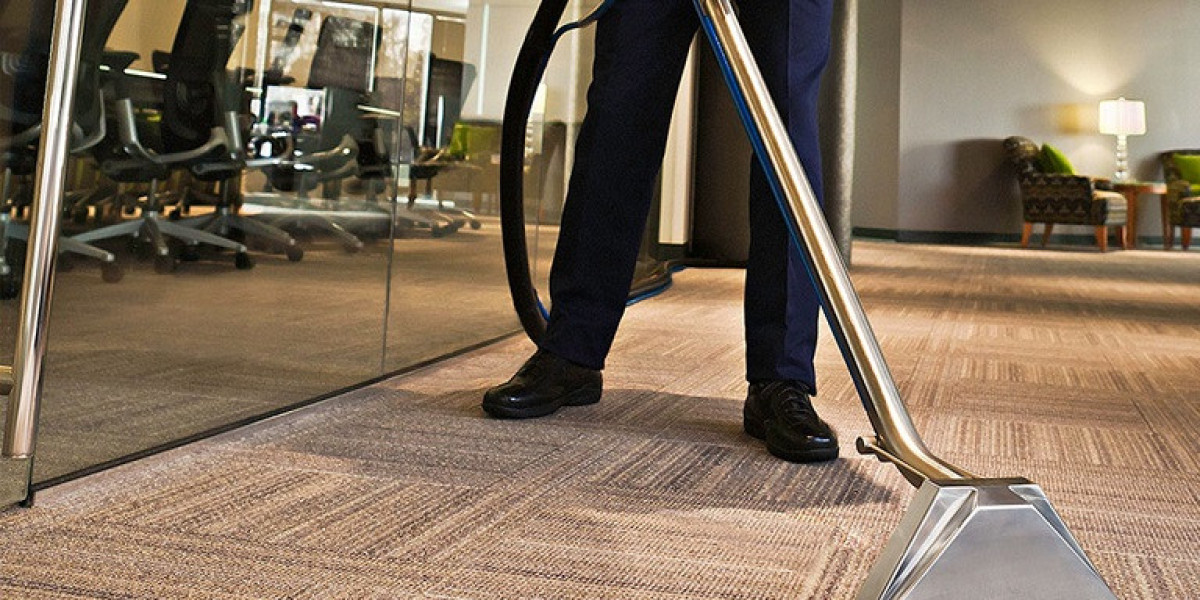A Remote Legal Intake Specialist is the first point of contact when a potential client reaches out to a law firm. They do this work remotely, using phone, email, web forms, or chat, to gather initial information, assess whether the potential client’s issue fits the firm’s focus, screen for conflicts, and set expectations. They are the bridge between people who need legal help and the legal team that will serve them.
At Next Level Paralegals, the intake specialist is particularly trained to act with legal understanding—even though much of their work is preliminary and does not require licensed‑attorney tasks. Because Next Level places attorneys (bar‑passed) in remote support roles, their Remote Legal Intake Specialist often have better legal literacy, know legal terminology, can recognize important jurisdictional or procedural issues, and can communicate clearly in ways that make clients feel heard, respected, and well guided. This improves the quality of intake dramatically.
Key Responsibilities
Based on Next Level Paralegals’ own descriptions of the job, here are the core responsibilities of a Remote Legal Intake Specialist:
First Impressions and Client Communication
Be the front‑line ambassador: answering initial inquiries with professionalism, empathy, clarity.
Translating legal jargon or complex instructions into language a potential client can understand.
Information Gathering
Collecting detailed, accurate information about the potential client’s situation: contact data; nature of the issue; documents; timelines; parties involved.
Identifying missing details or documents and ensuring follow‑up is done to complete the intake package.
Case Screening / Triage
Assess whether the inquiry fits within the firm’s practice areas (does this matter match what the firm handles?)
Checking for conflicts of interest (is there anything that prevents the firm from taking the case?).
Expectation Setting
Letting the prospective client know what the process will look like, what steps are ahead, what types of documentation or deadlines are involved. Managing what the client can reasonably expect (costs, timeline, outcomes)—so there are no surprises or false expectations.
Record‑Keeping and Documentation
Maintaining clean, organized intake records: notes of conversations, forms, documents, correspondence.
Ensuring data (including any sensitive or personal information) is stored securely and in compliance with firm or regulatory standards. While not always explicit, Next Level emphasizes professionalism and secure workflows in many contexts.
Follow‑Up & Client Nurturing
When required, reaching out to prospective clients to collect missing information, remind about pending tasks, clarify questions.
Ensuring that leads are not lost due to lack of communication or delay. A good intake specialist helps maintain momentum.
Improving Conversion & Client Experience
Because a good intake interaction builds trust, clarity, and comfort, it often improves the rate at which prospective clients become actual clients.
Resolving initial anxieties or confusion, clarifying how the firm works, pricing issues (if relevant), timelines. All of this contributes to stronger client satisfaction from the start.
Why the Role Matters: Benefits for Law Firms
Here are strong reasons why having a capable Remote Legal Intake Specialist matters, especially as deployed by Next Level Paralegals:
Enhanced Client Experience from the Start
The first conversation or connection shapes how clients perceive your firm. If that interaction feels disorganized, slow, or confusing, potential clients may go elsewhere. A specialist who is responsive, clear, compassionate, and efficient helps build immediate credibility.Reduced Wasted Time
By filtering out inquiries that are outside your practice areas early, identifying missing information, and gathering as much as possible upfront, you save attorney time. Attorneys can focus only on viable cases rather than chasing preliminary details.More Efficient Workflow and Less Burnout
Without intake overload, your staff downstream (attorneys, paralegals) can operate with fewer bottlenecks. Good intake reduces revision loops, miscommunications, or redoing work because foundational information is missing.Higher Conversion Rates
Prospective clients who are treated well early are more likely to follow through. When intake is fast, informative, and reassuring, conversion of leads tends to improve.Stronger Trust and Reputation
Especially in legal services, trust is earned from communication, transparency, clarity, and responsiveness. A Remote Legal Intake Specialist plays a big role in setting that tone.Scalability
Since the role can be remote, law firms can scale intake capacity (more leads, more volume) without needing physical space, or incurring all of the local overhead of hiring someone in‑office. Remote intake teams can flex based on lead volume.
Skills, Qualities, and Qualifications of an Effective Remote Legal Intake Specialist
For the role to deliver, certain skills and attributes are essential. Based on Next Level Paralegals’ descriptions, here are what to look for:
Strong Communication Skills (Verbal & Written)
Must be able to explain legal concepts (within the limits of intake) in clear, non‑legal jargon. Must be empathetic, patient, good listener.Legal Literacy
Understanding of legal terms, basic procedures, knowing enough to screen cases properly, identify conflict issues, understand what information is needed for various types of cases. Even if not fully licensed in every jurisdiction, having law‑education or legal training helps.Empathy and Customer‑Service Orientation
Clients seeking legal help are often under stress, confused, anxious. An intake specialist should be able to treat them with sensitivity, clarity, care.High Organization / Attention to Detail
Handling multiple leads, making sure no inquiry is dropped; ensuring all fields in forms are filled; following up on missing material; keeping records clean.Efficiency & Responsiveness
Speed matters. Prompt responses, prompt follow‑ups, making sure prospective clients are not left waiting.Integrity and Confidentiality
Handling private, possibly sensitive client info; doing conflict checks; keeping data private; ensuring compliance with security norms.Adaptability & Tech Savviness
Must be comfortable with using intake software, CRM or case‑management tools, virtual communication tools. Able to adjust to firm’s preferred processes and tools.
Challenges & How to Address Them
Even with a well‑defined role, there are challenges. Here are common ones and how firms (especially those working with Next Level Paralegals) can anticipate and mitigate them:
Incomplete Information or Unclear Intake
If prospective clients provide vague descriptions or partial details, it may be hard to assess properly. Mitigation: develop strong intake questionnaires, use forms with required fields, train intake specialists to ask probing questions.Expectations vs Reality Misalignment
If the intake specialist overpromises, or doesn’t clearly define what the firm can deliver, clients may be disappointed later. Mitigation: standard scripts for expectations, clear communications about timelines, no guarantees, etc.Handling Sensitive or Emotional Cases
Some clients come with urgent, stressful, or traumatic matters. Intake staff must handle with empathy, patience, and professionalism; should have protocols for escalating to attorneys when needed.Balancing Volume with Quality
Especially when leads are many, there may be pressure to process quickly. But speed should not degrade the thoroughness of intake. Mitigation: ensure enough staffing, monitor lead volume and intake capacity; have metrics to detect when quality drops; maintain oversight.Security and Data Protection
Remote intake involves transmitting client information over networks, storing records digitally. Must ensure secure platforms, strong confidentiality agreements, secure file sharing, and good practice of data handling.Time Zone / Coverage Issues
Prospective clients expect timely responses. If your intake specialist is remote and in another time zone, there may be lag. Mitigation: ensure overlap of working hours, define acceptable response times, possibly have multiple shifts or backup support.
How Next Level Paralegals Executes this Role Well
Next Level Paralegals describes a well‑thought‑out intake specialist offering. Here are how they implement many of the features above:
Intake specialists are trained in professionalism, empathy, and competence; they are part of the remote attorney‑paralegal ecosystem, which tends to have higher legal literacy.
They emphasize case triage: aligning potential clients with the firm’s practice areas, filtering out matters that do not align so attorney time is used effectively.
They stress streamlined and consistent documentation and record keeping, to avoid lost leads or missing pieces of information.
They highlight personalization: listening carefully, asking the right questions, treating each inquiry as unique rather than rote. This builds client trust from day one.
Best Practices for Firms Using Remote Legal Intake Specialists
If your firm is considering (or already using) a Remote Legal Intake Specialist—especially via a provider like Next Level Paralegals—here are best practices to ensure success:
Define Your Intake Process Clearly
Map out all steps: how leads come in; who answers; what questions must be asked; what qualifies a lead; how information is collected; when follow‑ups happen; who transfers the case to attorneys.Develop Intake Templates / Scripts
Use standardized forms and scripts so that no critical question is missed and that information is uniform. Also helps in training new intake staff.Train Intake Specialists Thoroughly
Even with experience, they must be trained in your firm’s specific areas of expertise, your documentation style, your expectations of responsiveness, your client communication style.Ensure Proper Tools & Infrastructure
Secure case‑management or lead management system; CRM; secure document sharing; digital forms; tools for scheduling; cloud storage; ways to track follow‑ups.Set Metrics / Key Performance Indicators (KPIs)
Measure things like lead response time; conversion rate (inquiries → clients); number of missing information items per intake; dropout rate during intake; client satisfaction early in the process.Feedback Loops
Regularly review intake calls or communications (with consent) to see what is working, what could be improved. Get inputs from attorneys receiving the intakes to see if the data they are getting is useful and complete.Manage Client Expectations from the Start
Make clear what the client can expect in terms of process, timeline, fees, documentation, etc. Transparency builds trust.Maintain Ethical Oversight
Make sure screenings for conflicts of interest are done properly; that any tasks which require licensed attorney involvement are routed properly; that confidentiality and privacy obligations are respected.Plan for Scale & Capacity
As lead volume grows, ensure you have enough staff to avoid delays or degraded quality. Be ready to invest in overlapping hours or backup intake resources.
Sample Structure: What a Day in the Life Might Look Like
To illustrate how a Remote Legal Intake Specialist might operate in a firm working with Next Level Paralegals:
Morning: review any new leads or inquiries from after hours; send responses; fill in missing information via follow‑up emails or calls.
Mid‑morning: conduct scheduled intake interviews over phone or video; gather all needed details; document carefully.
Lunch: catch up on scheduling, conflict checks.
Afternoon: meet virtually with attorneys to review prospective clients that seem promising; discuss possible strategy or referral of those that don’t fit; assign follow‑ups.
Late afternoon: send out intake confirmation emails; ensure documentation and records are stored correctly; check back on any pending information; prepare schedule for attorneys.
A Remote Legal Intake Specialist is much more than a gatekeeper—it’s the foundation of client conversion, trust, and smooth case flow. When the intake process is done well, the downstream work—from research, drafting, case management—becomes more efficient, less error‑prone, and less frustrating. A firm like Next Level Paralegals’ emphasizes this role as part of its remote paralegal services, placing individuals with legal training, empathy, responsiveness, and strong organizational skills at the front door of client interaction.
If your law firm is struggling with delays in client intake, losing leads because of poor follow‑ups, or having attorneys spend too much time just prepping the client intake, then investing in a Remote Legal Intake Specialist may be one of the best moves. With clear processes, accountability, proper tools, and the right person, this role can substantially lift your firm’s efficiency, reputation, and ultimately growth.








